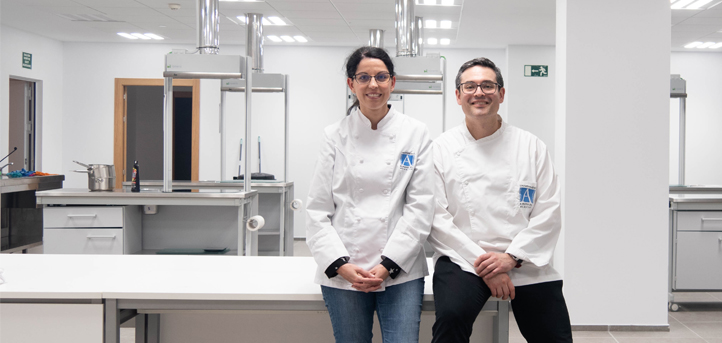The European University of the Atlantic will offer the degree in Gastronomic Sciences the following academic year, a program that will enable the university to complete its current offering in the fields of food, composed of the following programs: Human Nutrition and Dietetics, Food Science and Technology and Agro-Food Engineering.
The new degree, which is already approved by the National Agency for Quality Assessment and Accreditation (ANECA, Agencia Nacional de Evaluación de la Calidad y Acreditación), will have a duration of four years, with face-to-face classes beginning in September in the Santander campus.
UNEATLANTICO’s degree in Gastronomic Sciences will train professionals associated to the food and catering industry, with the study plan paying special focus on the importance of business and health management.
“The sector’s present and future depends on professionals who understand the key management of the business”, rector Rubén Calderón explains. As such, he states that specific subjects of the degree in Gastronomic Sciences are reinforced in UNEATLANTICO with such subject materials as Financial Accounting and Cost Accounting.
As explained by the dean of the Health Sciences Faculty, Sandra Sumalla, as of September UNEATLANTICO will be “the only university in northern Spain that has all the degrees in the area of Food”.
This multidisciplinary approach will be reflected, she says, “both in the teaching quality and in the power of research within the food sector”.
The University began work on the new Gastronomic Sciences laboratory this summer, which is now 50% operational. All improvements will be completed by September when the students of the Gastronomic Sciences degree will then enjoy the facilities at full capacity.
The President of Cantabria praises the potential of UNEATLANTICO
Once the news reached the President of Cantabria, Miguel Ángel Revilla, he highlighted UNEATLANTICO’s “firm commitment” to the lessons related to the agro-food sector, “a sector growing in strength which contributes to the creation of wealth, to placing value on rural areas and to spreading the image of the Autonomous Community throughout the world”.
And in this sense, he emphasized that better qualified professionals lead to greater quality of this sector and, therefore, “more prestige for the region”.
Revilla reiterated the Government’s willingness to continue collaborating with UNEATLANTICO and underlined the university’s potential from the point of view of promotional tourism.


